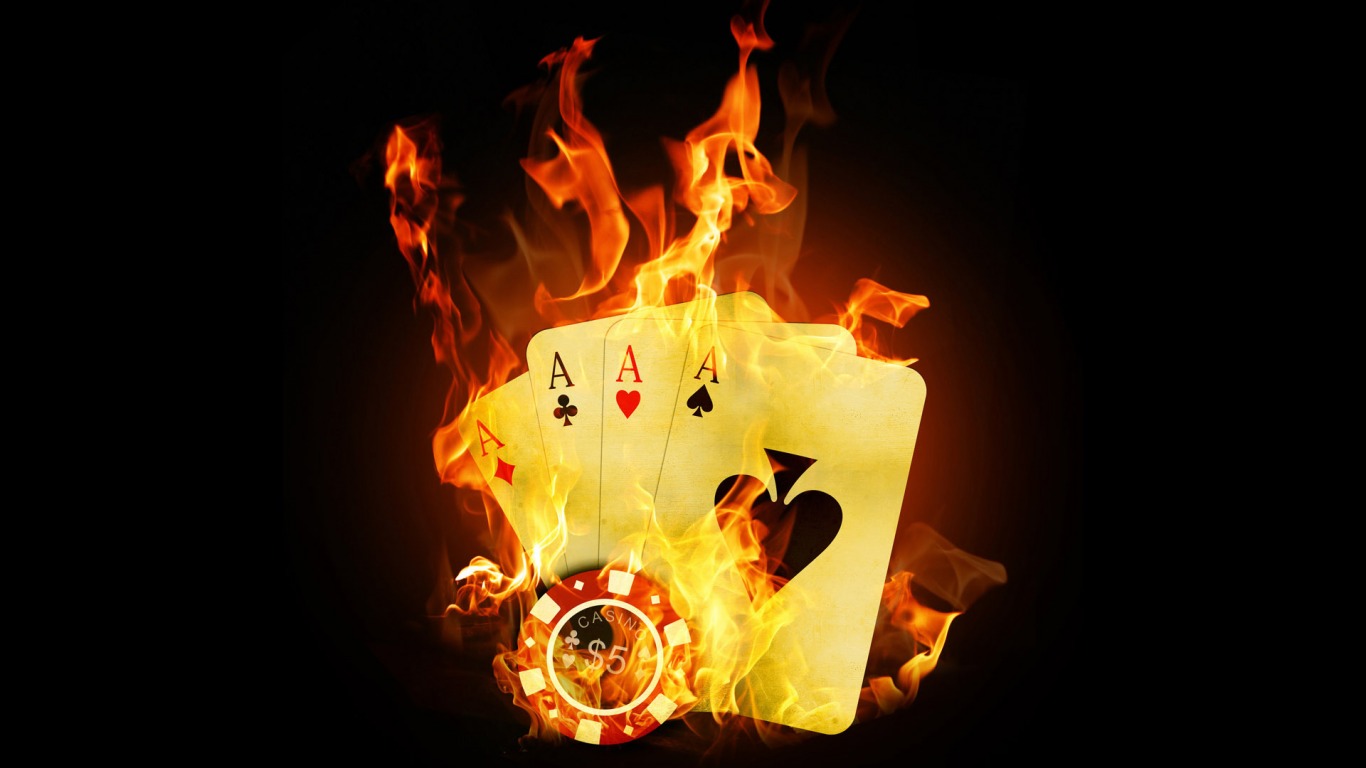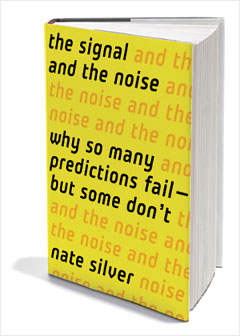
If you have 3 barreller a player who has wedged on 3 streets with an average hand, you will be more or less inclined to repeat this game with "air" in the near future?
There are two ways of looking at it. If the player is ill or has learned to play on TV, he will say that you are bluffing and you're still trying to bluff.
If the player is good and smart, he will say that you just bluff and it is very unlikely that you're still trying to bluff. So depending on the type of opponent you can know if this is a good time to bluff again or not.
If you ever Bettez 3-position player, he can say, "Ok, this time is enough, I take a chance" and Callera out of position with a hand like KTo. "Sometimes I play against players and I always make the same game I know it's the players who open very light but very little playback and I'm still 3-bet and they still do not respond, do not fit or do not fit well.
Often when you play 6-max, you play against players who play on tons of tables and play robots and do not use the psychological side. Often they will take the same line with the same hand. For example, they have a hand like AJ on a board with an A and they will check-call, check-call, check-call and repeat the same game with the same hand on the same board later without worrying too much about nothing . And that's a good thing, because you know that in this situation, your opponent has something and you do not attempt to bluff.
In addition, if you see any of these players on the autopilot trying to bluff you once and it does not work, when you will see further make-overbet shove, you know it is not bluffing. They always have something when they do it because they believe they have successfully built an image of bluffing. This is something important in psychology, to create an image of bluff and wait for the nuts. This is how you manage to wash all your friends in the parts houses.
The fact that 4-betting is also something important. There are some months I played heads-up against a good player heads-up and it was one of my first sessions against him and I already had some reading on it. I knew that 3-bettait much, he never flat-callait on the big blind and although seemed a little tight, he 3-bettait a ton of hands on the big blind. It was then that I thought I would start the 4-better to realize that was like 3-bet all in and jam hands like 22, KT and shit of its kind after my 4 - bets.
I 4-bettais light like a clown. I relançais it bettait-3, I-4 bettais and he pushed all-in. And four times I went to bed, saying: "This time there is something I can not believe. "
What I could do is raise to 3 or 4 times the BB to push all in against his 3-bet with hands like A5 because I know his range 3-bet is about 25% and I will be ahead of his range.
Or raise 4 or 5 times BB, 3-better leave his opponent, caller the 3-bet all in and then jam on almost all flops.
Another thing that I would like to talk about is the heads-up (HU). If I play HU against one player on 4 tables and a table I AA, I will instantly 3-bet on all tables to show him that I 3-bet light. And I always hope when I do this game my opponent will try to playback me on the table where I aces.
Yes, this is a game that can be good, but when you are against good opponents, it will be important to balance your game because it does not necessarily attempt you playback on 3 tables and it is possible that this the no effect at all. I must tell you that I often thought too far and it often costs me money. I do this on every table and my opponent down on all the tables and then I remake this game a little later with nothing and my opponent I 4-bet on all tables.
If we take a semi-intelligent player who grind the mid-stakes and you're better 3-3 or 4 table four heads-up, for example, it will at least give you credit for 1 or 2 tables.
Important to know what are the conditions under which you Bettez-3. You must be aware of your position, stack sizes, the flow of the game, etc.. It is important for the psychology of the game is something difficult to explain, but if a player is what we are talking, you must be able to properly analyze the situation to be able to make good reading.
It's an important thing to consider as multi-table some people between 10 and 12 tables and should not play robot like them. The psychology of the game is something important, but know that when you play against players who play 12 tables, you probably play against players who never deviate from their standard. It is therefore very important to determine against which you develop a psychology of metagame and against which the metagame will be nonexistent.
I have certain habits and tendencies against certain players. For example, against some players I trash - much talker chat. I know that this or that player never did anything when playing a hand and I know he knows that I have never when I play a hand and therefore I know that we will never take line Annoying against each other when we play our hands. I know we're still thinking about 3 or 4 levels when playing against each other.
I play regularly against a guy who is often playing in 21 other tables other than mine, and if you try to create a history of metagame against him, you're wrong. Everything the player sees is his cards, the size of the stack, your name and stack. He did not see anything else. It's like a blind player somehow. Perhaps he reading the 2 +2 forums on another monitor is it, perhaps playing another PLO table.
There is something important that is called reads. When I say read, it is a general term that has to do with the metagame, and the image that relates with 1000 other things. If I take a player like Daniel Negreanu, it is those who believe that the size of bets and patterns of development are that there are more important and that is that there are more important to of reads. The size of updates is something I consider very interesting. I will try to make some generalizations about the size of bets that you should use to make reading your opponents.
First, a clear and mathematical statement. Smaller bets will most often called the big bets. Mathematically speaking, if you bet small, your opponent will have better odds to run his cards and if a second pair for example, it will be tempted to call the bet. If the bet is small, it will only need to make a good call 1 out of 3 times instead of 1 time 2 for example. When you are in the highest levels, players are better and good players know that and then the dynamics change.
I'll give you an interesting example. I have a new approach against the overbets. In general, I see overbets as strong. You play against a bad player. The flop is 4-4-2. You bet, he called. The turn check-check. You check the river and pushes all in for 5 times the size of the pot. It is a way for the wrong player to tell you he has a square in case you did not already know it. I have not managed to build the pot throughout the hand, the pot is too small on the river, I have a square, I want to pay me, I do not know how, it's Hold ' em limitless, I push all in even if it is an overbet.
Here is the thought of a bad player.
When you arrive in the high stakes, people know that overbets are often interpreted as a sign of great strength and I would like to talk about a hand I played. It was a hand against Gman06 twoplustwo on hand and I think is really interesting. I flopped top pair medium. I think I had a hand like J9s. The flop was something like 942 with a flush draw. The flush draw is important here. It was part of heads-up and I was out of position. I check-called the flop. It was a very standard line and I think we were deep. What is important is the categorization of my hand and not my hand in particular. So I had a middle pair out of position. I also had a backdoor flush draw. The turn was say a 7. I check-called again. The river gave a TB
My opponent bet something like 575 on the river in a pot of something like 340 or say one and a half times the size of the pot. After this I started to think about several things. I wondered why he did not build a pot before the river if he had something like a set and why he had not banked before. I never said that he could not have a legitimate hand and here he relied simply because he thought I had nothing and I could not caller. He also knew that I knew that overbet is often a sign of strength and I did not have a big hand and I certainly would sleep.
The result is not important. What is important here is that my opponent has said that in this spot, I could never have hand and I could never put the caller. What you should know is that if he wanted to make me a folder flush draw, he did not need to rely as much. By cons, it is a good player and he knows you know he knows that. What he is trying to do here is to show that not just trying to drive me the flush draw, but he tries to get the value of a hand. At another level of thought, it might be bet-third or half of the pot to let me believe it was a small value bet. It's different levels of thinking because he can never be sure I'm on the same level as him and I know what level it is.
Yes it is true and as we have not seen hands, we can not know at what level our opponent is thinking. One of the situations that I love to overbetter is when there is some draws and no draw not complete on the river. My opponent can imagine that I did not hit my draw not on the river. Suppose I have against top pair. Since my opponent knows I did not hit my draw and I have top pair, I'll make a big overbet. Not necessarily an all-in overbet, but overbet.
Discuss this article on the forums PokerCollectif: Some notes of psychology in poker - Part Two




